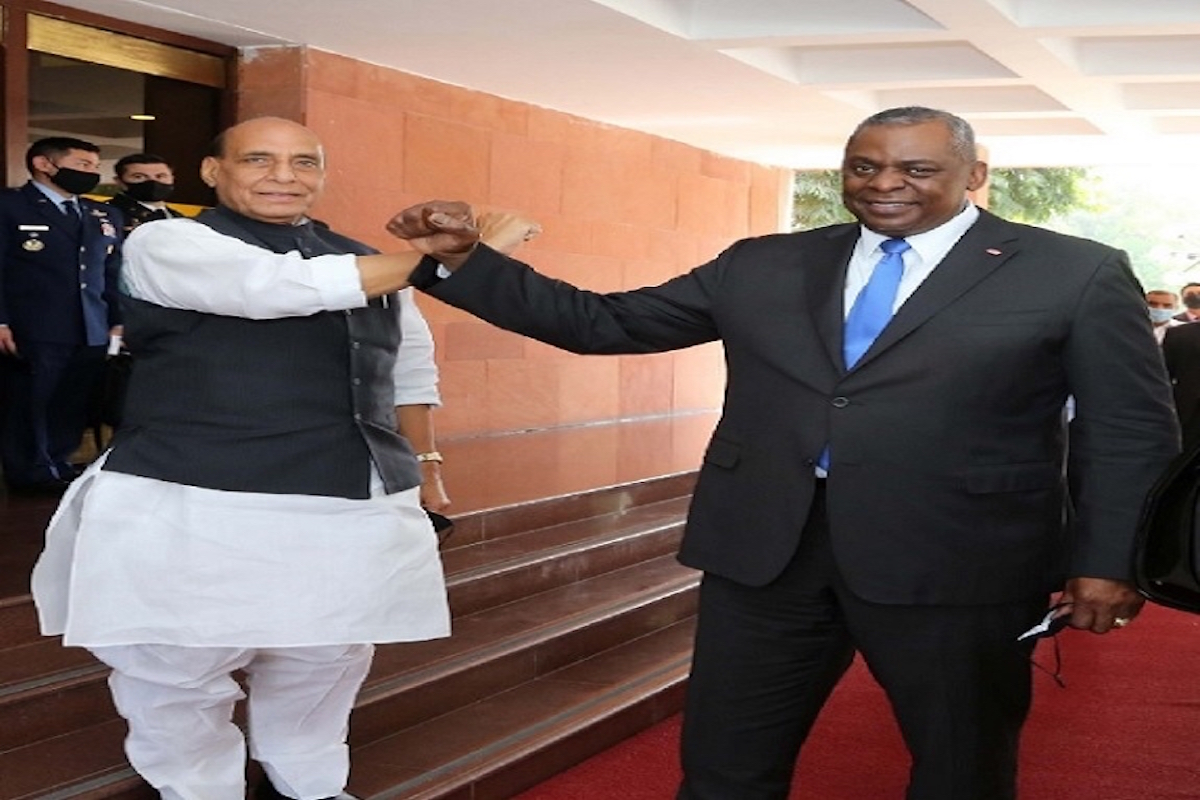Neither India nor the United States had expected either Defence minister Rajnath Singh or the US Secretary of Defence, Lloyd Austin, to dwell on specifics during their interaction on human rights and values. Yet the fact that the subject was discussed was in itself a striking feature of their talks. The approach on either side of the high table was riveted to generics, arguably in the aftermath of the recent killing of eight Asian Americans in Atlanta.
The critical issue of human rights was largely confined to “shared values”; there were no interlocuters to discuss the situation in either country. The rights of the minorities were of course alluded to when the focus shifted to Afghanistan. The external affairs minister, Mr S. Jaishankar, is reported to have told Mr Austin that the “US should not let down the minorities in Afghanistan”.
Advertisement
Nor for that matter in Pakistan ~ with its hideous laws on blasphemy ~ or Bangladesh where Hindu dwellings are attacked by Islamist fundamentalists, as happened in Sylhet last week. Mr Austin is reported to have told the Defence minister that “as the two largest democracies in the world, human rights and values are important to us and we will lead with these values”.
The US Defence secretary was suitably evasive when asked whether he had discussed the persecution of Muslim minorities in the North-east. “I did not have an opportunity to talk to the Prime Minister about that. Yet I did have a conversation with other members of the Cabinet on this.” Markedly, he did not go into details.
As regards “shared values” Mr Austin was a mite more explicit. “You have heard the Prime Minister say that human rights and the rule of law are important to the United States.” He took care to remind his host that “India is a democratic country and you treasure your values as well. There are a number of things on which we can and will work on together.”
Once again, the head of the Pentagon stopped short of specifics. Suffice it to say that both leaders utilised the opportunity to evaluate the US-India Major Defence Partnership, which has suitably been accorded priority by the administration, helmed by Joe Biden and Kamala Harris. The essay towards achieving the goal can arguably be initiated through three critical parameters ~ regional security cooperation, military-to-military interaction, and defence trade.
The full potential of the global strategic partnership can perhaps be fulfilled through defence cooperation, expansion of military-to military engagement across services, sharing of information, and sharing of data in the emerging sectors of defence, and mutual logistics support.
There has, therefore, been a certain forward movement in matters of defence. Human rights is too hot a potato for both India and the United States of America. George Floyd personifies the worst instance of man’s inhumanity to man in recent times. The killing of eight people, including six women of Asian descent in Atlanta, lengthens the hideous loop.











